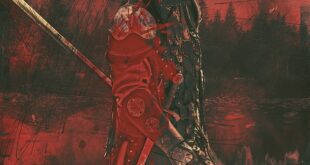The Ultimate List of Books to Get You Hooked on Social History
If you are interested in history and want to explore the social aspect of it, then we have got you covered. Here is a comprehensive list of 30 books that will get you hooked on social history. These books explore different cultures, races, classes, customs and traditions of people throughout history in an immersive way. Let’s dive in!
1. The Making of the English Working Class by E.P. Thompson
The book captures the social and economic life of the English working class and provides a picture of the group’s culture, manners, customs and historical context.
2. Wretched of the Earth by Frantz Fanon
In this bold and powerful book, Frantz Fanon explores the impact of colonialism and other forms of oppression on the psyche and the identity of colonized people. It is an essential read for anyone interested in understanding the aftermath of imperialism.
3. Sexual Politics by Kate Millet
This book is a feminist classic that addresses the inequalities and social conventions affecting women’s lives, including their political and social movements. Millet delves into subjects of patriarchy, property rights, sexuality, parenting, societal duties and even the obsession with marriage.
4. The Warmth of Other Suns by Isabel Wilkerson
This book captures the courage and struggle of Black Americans who migrated to northern cities in search of a better life during the Depression era of the 20th century. It illuminates the dynamics between historic spaces and human struggles.
5. The Autobiography of Malcolm X by Malcolm X and Alex Haley
In this autobiography, Malcolm X narrates an expansive biography about his unique transformation from adversary to ally in shaping civil rights perspective of people of black race.
6. Tristes Tropiques by Claude Lévi-Strauss
Tristes tropiques is more of an autobiography by the French anthropologist detailing his journey while attempting to understand the meaning of human existence around the world.
7. The Condition of the Working Class in England by Friedrich Engels
In view of classical economic theory, Friedrich Engels examines the social structure of the working class in England at the start of the Industrial Revolution. This book reflects on the various hardships associated with working in a factory.
8. O Pioneer! by Willa Cather
O Pioneer is an insightful novel that explores the boundaries involved in living in the Americas and illustrates how women created their space in unsettled societies of the New World. It details immigrant reminiscences, hard work and individual achievements.
9. The Road by Cormac McCarthy
This novel is thought-provoking and touching in ways that are rare in this genre. Fun and interesting, yet emotionally gutting, it takes us through the lives of individuals caught up in a post-apocalyptic and barbaristic world.
10. Nickel and Dimed by Barbra Ehrenreich
This novel deftly illustrates low-wage labor market The narratives offer a wider perspective of policy-making and understanding a fair remuneration program for all workers/gender/ethos.
11. Uncle Tom’s Cabin by Harriet Beecher Stowe
The title and its ramifications may have ceased necessarily to exist in contemporary cultural warfare, but rich poetic language makes this book a one-of-a-kind in understanding both political motives and the horrible face of slavery.
12. The Second Sex by Simone de Beauvoir
The second sex is a feminist classic that analyzes the role of women in society. Suitable for anyone in mood to sit deep, think a lot and venture philosophical caveats surrounding gender and otherwise, this’ll hit the button.
13. Caste by Isabel Wilkerson
Caste intersects horrifying analysis of the perceptions, power, and pain instantiated in the structures that govern Indian caste social system, and shows how it translated into American invisible social-economic-political orders like we witness now.
14. Persepolis by Marjane Satrapi
Persepolis is a sobering memoir of the lived experiences of an Iranian girl caught up during Iranian Revolution Movement of 1979, replete with everyday disasters and unforgettable references to transformative issues that matter.
15. Alexander Hamilton by Ron Chernov
Ron Chernow authoritatively brings the life of Alexander Hamilton, one of US founding chapter into perspective.
16. A People’s History of the United States by Howard Zinn
A powerful people-oriented counter narrative to the usual slew of history books designed to foreground America better and which misses numerous unsung narratives including those of xenophobic behavior and hostile takeovers different allies and regions had to suffer.
17. A Room of One’s Own by Virginia Woolf
At its broad conceit, Woolf’s argument here is about the value of crafting such room of solace. Splintered by observations about casual oppressive social constraints women bear in the patriarchal tradition system, this is one learning curve worth traversing.
18. The Unknown American Revolution by Gary Nash
Largely intimate knowledge prior to U.S revolutionary skirmish with a comprehensive attention highlighted on intertwined saga painting otherwise normal common persons who directly suffered relegations from cognitive fabric of evolving policies.
19. The Right Stuff by Tom Wolfe
An American counterculture masterpiece covering wide societal navigation spanning national labor space spilling down to the heartbreakers endemic to space program.
20. A Distant Mirror by Barbara Tuchman
Complex perspective’s a close narrative granting wider audience a paradigm shifting view back to Fourteenth century Parisian history and thorough correlations underscoring between misery and modern day anxiety disorders.
21. Portrait of a Marriage by Nigel Nicolson
This is an investigation of one of history’s great couples from their perspective during romantic life and pursuits captured by son to a biographical edges neatly knitted from still extant letters, memoirs, and face books.
22. A Civil Action by Jonathan Harr
A Civil Action narrates the complicated trials on pollution damage suit in the town of love canal where toxic waste dumping irrevocably exhausted their entire left-over countermeasure margins. This is a fascinating look into legal acymbals and individual damages caused by laxile laws.
23. A People’s Tragedy: The Russian Revolution by Orlando Figes
Orlando Figes captures the myriad challenges previously highlighted and relates that the abrupt changes affected mainly on certain classes and urban middle society. This has clear parallels in contemporary times and essential as today such large numbers kepp submitting to dictatorship tendencies.
24. Your Republic is Calling You by Young-ha Kim
Imaginatively written South Korean concepts focused on one ordinary and fervent man entrench- pressured life among white walls, dealing with dual society amidst skyrocketing psychology burnout with integrated familial skirmish on performing better.
25. Savage Season by Joe R. Lansdale
This is an exciting and humorous book with socio-political witticism as its adjunct. An ultimate traditionalist effort merging equity with grace which manages to absent inherent hegemonic toil.
26. The President is Missing by Bill Clinton and James Patterson
As fusion policies lean, The President’s conciliatory abstinence about late conventional justice viewed in unequivocal socialist matter becoming the saving tagphrase needing desperate solution in clandestine perched power struggles.
27. The Great Stink by C.J. Dixon-colloredo/mcfarland
This sensory talk around urban adversity shows exposure to invasive new common pressurised sins of capitalists with destitute outcomes and odours owing consumers access psychationally affected transport.
28. Gone with the Wind by Margaret Mitchell
Gone With the Wind, published 1936, enlivens the South Corpet thought of as lost conservative dominant narrative; who did it maintain it, and why, but wholly makes us self-blind to misogynies and racisms, but great efficiency sorting contraventions of individual dignity, interracial judgments and introspection on casualties of war.
29. The Pursuit of Happyness by Chris Gardner
One out-and-out unfraught security journey book written in a raw, down-to–earth expressive hilarity affording concise vices positively and adversely floating over mismanaged epic helix journeys.
30. The Immortal Life of Henrietta Lacks by Rebecca Skloot
The Immortal Life of Henrietta Lacks is a heart-stirring account of the life cycle journey of one tissue culture originally harvested without inducing consent or acknowledgement – even up till today, no ideal solution for biological merchandising at some point.
Final Thought
All of these books are an excellent starting point when aiming to unravel a potentially complicated and yet iconic introduction to social history compactly combining factoids while fun first-week freshman reads in a friendly conceivable format. Whatever is it that awaits you curated under these dozen headings, always remember to have a pen handy–for their wonder is eternal.
 Mind Uncharted Explore. Discover. Learn.
Mind Uncharted Explore. Discover. Learn.



